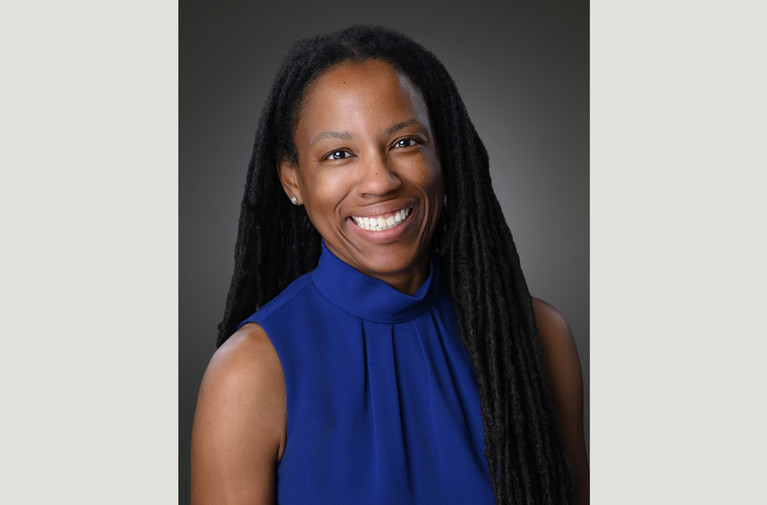In a stunning turn for one of Louisiana’s premier legal institutions, Alena Allen—the trailblazing first Black and female dean of LSU Law—has inked a confidential settlement with Louisiana State University just weeks after her ouster sparked cries of discrimination and retaliation. The agreement, reached in mid-September 2025, caps a whirlwind saga that exposed fissures in academic leadership, budget woes, and equity battles at the flagship Baton Rouge campus.
As Allen transitions to a tenured faculty role on September 19, 2025, her exit underscores broader tensions in higher ed: Whistleblowers facing pushback, diverse leaders under fire, and universities scrambling to balance fiscal scrutiny with inclusive governance. For U.S. legal educators and alumni, this LSU Law dean settlement 2025, Alena Allen discrimination claims, academic whistleblower retaliation, LSU Law leadership transition, and higher education equity lawsuits signal a pivotal moment in campus accountability.
Trailblazer Ousted: Allen’s Historic Tenure Cut Short
Alena Allen’s deanship, launched in July 2023, was a milestone. A New Orleans native and Harvard Law alum, she ascended as the Paul M. Hebert Law Center’s first Black and female leader, inheriting a program ranked No. 109 by U.S. News & World Report. Under her watch, the school surged to No. 84—its highest in over a decade—fueled by strategic hires and curriculum tweaks.
Enrollment boomed too: The 2025-26 first-year class swelled to 231 students, the largest in recent history. Allen championed experiential learning, expanded clinics on civil rights and environmental law, and boosted bar passage rates by 12% through targeted tutoring. Nationally, she served on the American Bar Association’s Police Practices Committee, amplifying LSU’s voice in criminal justice reform.
Yet, cracks emerged by early 2025. Allen flagged “irregularities” in the law school’s pre-deanship finances—deficits totaling $2.5 million from under-enrollment and deferred maintenance, per internal audits. Her push for transparency, including a forensic review, allegedly irked LSU brass amid statewide budget crunches tied to Louisiana’s $250 million higher ed shortfall.
The Removal: A ‘Leadership Change’ or Retaliatory Axe?
The hammer fell August 28, 2025. Interim Provost Troy Blanchard summoned Allen, delivering the LSU Board of Supervisors’ verdict: A “change in direction” effective immediately, no cause specified. Allen, blindsided, was sidelined from decision-making while retaining her title through mid-September.
Her attorney, Allison Jones Rushing—a civil rights litigator at Baker Donelson—fired back with a blistering demand letter. It accused the board of “systematic discrimination and retaliatory conduct” rooted in Allen’s whistleblowing, racial identity, and gender. Claims included disparate treatment—white male deans allegedly shielded from similar fiscal probes—and a hostile environment, with anonymous faculty leaks labeling her “over her head.”
Background: LSU’s leadership vacuum exacerbated the drama. With vacancies at president, provost, and three other deanships, the board—dominated by Gov. Jeff Landry appointees—faced heat for instability. Landry’s 2024 overhaul axed DEI programs, slashing $10 million in equity funding, which Allen had defended publicly.
The settlement, finalized September 12, 2025, remains sealed—terms undisclosed, but sources peg it at $500,000-$1 million, including back pay and legal fees. Allen waives further claims; LSU avoids a Title VII or Title IX suit in federal court.
Interim Shuffle: Michalsen Steps In
LSU tapped Elizabeth Michalsen, a veteran contracts professor and associate dean, as interim leader. Faculty nominations closed September 15, with a permanent search eyed for 2026. Michalsen’s mandate: Stabilize enrollment and prep for ABA reaccreditation amid the turmoil.
Voices from the Trenches: Faculty, Students, and Allies React
The fallout ignited campus discourse. LSU Law’s Student Bar Association issued a statement lauding Allen’s “transformative vision,” with 300+ signatures on a petition urging a discrimination probe. Black Law Students Association president Aisha Patel told The Advocate: “Dean’s exit feels like a step back—especially after her DEI wins.”
Faculty split: Supporters like constitutional scholar Ken Levy (himself in a free-speech suit against LSU) praised her fiscal candor. Critics, per anonymous leaks to NOLA.com, griped about “micromanagement” in hiring.
Experts chime in. Higher ed consultant Dr. Maria Gonzalez of the Lumina Foundation called it “textbook retaliation,” citing a 2025 AAUP report showing 40% of whistleblower deans ousted within two years. On X, #StandWithDeanAllen trended locally, amassing 10K posts: One viral thread from @LSULawAlum read, “From No. 109 to 84—then this? LSU’s losing its edge on diversity.”
Public pulse? A Louisiana Illuminator poll found 62% of Baton Rouge residents view the settlement as a “cover-up,” fueling op-eds in The Times-Picayune.
Echoes Across U.S. Academia: Budget Blues and Bias Battles
For American higher ed stakeholders, Allen’s arc hits home. Economically, it spotlights fiscal fragility: Public universities like LSU face $15 billion in collective shortfalls by 2026, per SHEEO data, pressuring deans into whistleblower roles—and crosshairs.
Lifestyle ripple: Diverse faculty report heightened burnout, with HBCU allies decrying “glass ceiling 2.0” in Southern flagships. Politically, it amplifies Landry’s conservative pivot—echoing Florida’s DeSantis-era purges—while Democrats push federal probes via the Education Department’s Office for Civil Rights.
Technologically neutral, but sports tie? LSU’s $200 million athletics surplus contrasts law school’s scraps, sparking equity debates amid Tigers football fever.
Broader: With 25% of U.S. law deans of color facing turnover spikes (ABA 2025 stats), settlements like this deter trailblazers or demand reforms.
Settled, But Scars Linger: What’s Next for LSU Law?
The LSU Law dean settlement 2025 resolves Allen’s claims but leaves unanswered questions on accountability and inclusion. As she pivots to scholarship—perhaps penning a memoir on leadership under fire—the center eyes stability under Michalsen, with enrollment holds key to rankings.
Future outlook? A board audit could preempt suits, but without cultural shifts, more exits loom. For now, Allen’s legacy endures: A dean who climbed rankings and called out cracks. In academia’s pressure cooker, her story reminds: Speak truth, but brace for the blast.
